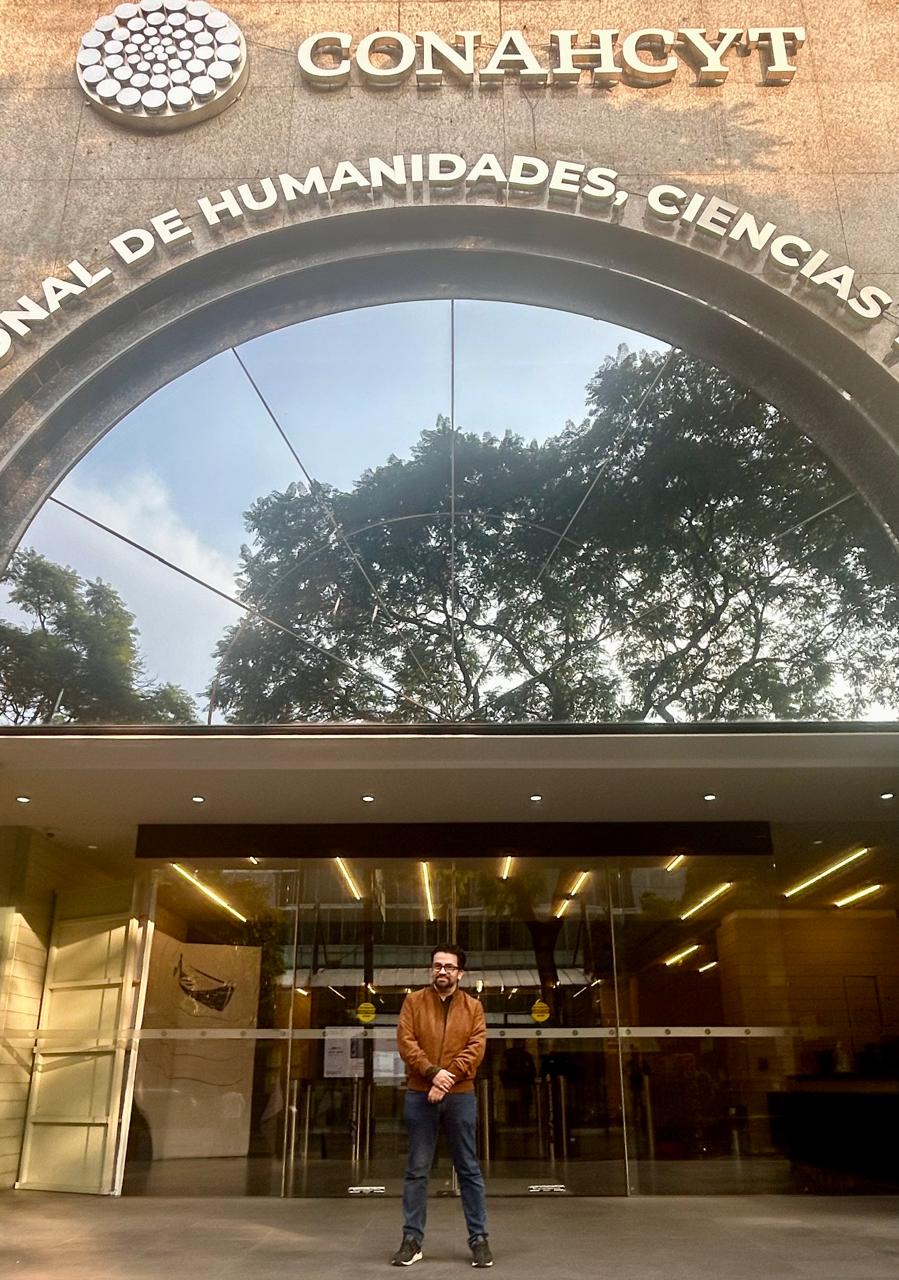‘One of My Goals Is to Encourage the Exchange between Russian and Mexican Philosophies’

Jorge Luis Méndez-Martínez, Research Fellow at the International Laboratory for Logic, Linguistics and Formal Philosophy, was named the winner of a competition of the National Council for Sciences, Technology and Humanities of Mexico. He was selected from hundreds of applicants for the position of Researcher for Mexico and will be working on a project on the philosophy of sound and auditory perception and the history of science in Mexico, Russia, and the Soviet Union. The HSE News Service talked to Mr Méndez-Martínez about the competition, his projects, and how playing the guitar helps him conduct research.
Jorge Luis Méndez-Martínez
— Congratulations on winning the competition! Tell us more about it.
— The National Council of Humanities, Sciences and Technologies is a federal government institution and it will soon become a ministry under the current administration. One of their main tasks is to promote highly qualified research in several fields. It is also the federal entity overseeing technological and scientific innovation. For instance, it developed the Mexican Covid-19 Vaccine ‘Patria’.
The ‘Researchers for Mexico’ programme (‘Investigadores por México’ in Spanish) started ten years ago (though by a different name). The purpose of the programme is to consolidate research institutions with highly qualified personnel and, on the other hand, to give highly qualified professionals (namely those holding a PhD diploma in sciences or humanities) the opportunity to continue their professional plans.
There is a call per year for the programme. As one of the council’s flagship programmes, ‘Researchers for Mexico’ received hundreds of applications this year. Only 25 applications were successful, thus yielding a very limited acceptance rate.
Accepted researchers are commissioned to develop a project within an institution for a 10-year period and are committed to making significant and relevant contributions to their field and, in most cases, to have a social perspective.

— You will be working on an ambitious project on the philosophy of sound and auditory perception and the history of science in Mexico, Russia and the Soviet Union. What are your ideas for the project?
My individual project is related to the research I have been doing for the last eight years at HSE, which pertains to sound and auditory perception
Likewise, a proposal for conducting research in the history of science that points to certain links between Mexico and Russia (and the Soviet Union) is in the works. I specifically would like to focus on certain key figures. Among them, I’d like to mention the Mexican philosopher Eli de Gortari, a logician, who published a work in the Soviet Union on dialectic logic (Введение в диалектическую логику). De Gortari was also the first—and to my knowledge the only—Mexican philosopher who published in the prestigious journal Voprosy Filosofii. Thus, one of my plans is to prepare a scientific paper in Russian about this author for that same journal and become the second Mexican philosopher to achieve this. One of my goals is to encourage the exchange between Russian and Mexican philosophies.
— You've previously worked with the logic of sound. Is it still an area of interest for you?
— Yes, it is still my area of expertise. I’ve still been publishing on this subject and some of my papers have even been cited in articles published in journals such as Inquiry.
Certainly, it is an area I am still cultivating and I am very grateful to HSE University for its support since I was doing my doctoral degree there and now as a research fellow. In particular, I would like to mention the support of Elena Dragalina-Chernaya, the head of my laboratory.
— You are a classical guitarist. How does it help you in your research?
—I am continuing with my career as a classical guitarist and am studying under the guidance of the prestigious Russian guitarist and composer Nadia Borislova, who is based here in Mexico. I won an international competition last year and gave a concert in January.
Interestingly, the project I was accepted for in the competition is partly related to music and encompasses certain activities with guitar at a pedagogical level
— Where are you based now and how is your work with the laboratory organised?
— As a research fellow with a distance contract, my duties have been purely focused on research and the publication of scientific papers. During 2024, two papers of mine were published, one in the prestigious Russian journal Horizon Studies in Phenomenology and in the Mexican journal Andamios, where I made a proposal on auditory cognition.
I am still taking part in the meetings of my laboratory. Our annual International Conference in Formal Philosophy will take place in a few weeks as well, and I am going to participate.
I am based in Mexico City. Hopefully next year I will visit Moscow with my three-year-old daughter Yekaterina, who is very keen on Russian culture (she loves to watch cartoons such as Cheburashka, Prostokvashino, and so forth) and likes to sign Oi To Nye Vecher and Goluboi Vagon.
I am looking forward to returning to Moscow very soon and to sharing the experience with my family